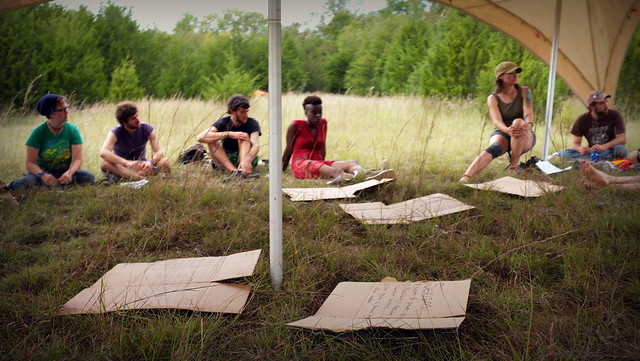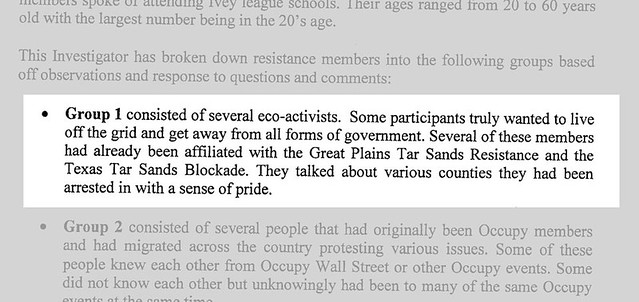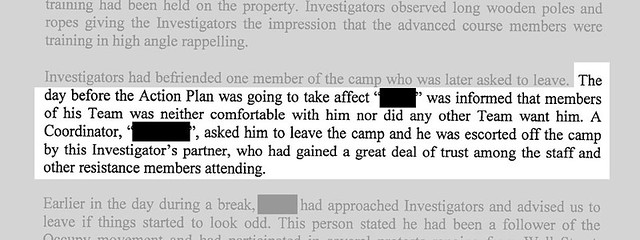 Published on Monday, August 12, 2013 by Common Dreams
Published on Monday, August 12, 2013 by Common Dreams
That America is in deep moral and legal trouble was pretty much obvious to everyone before Edward Snowden released official documents showing the extent to which the U.S. government has been playing fast and loose with the Fourth Amendment rights of Americans to be protected against unreasonable searches and seizures.
The 1965 Selma-to-Montgomery march was a key point in the civil rights movement. (File: Wikimedia)
Snowden’s revelations – as explosive as they are – were, in one sense, merely the latest challenge to those of us who took a solemn oath to support and defend the Constitution of the United States against all enemies foreign and domestic. That has been a commitment tested repeatedly in recent years, especially since the 9/11 attacks.
After all the many troubling disclosures — from torture to ”extraordinary renditions” to aggressive war under false pretenses to warrantless wiretaps to lethal drone strikes to whistleblowers prosecutions to the expanded “surveillance state” – it might be time to take a moment for what the Germans call “eine Denkpause,” a “thinking break.” And it is high time to heed and honor the Noah Principle: “No more awards for predicting rain; awards only for building arks.”
This is our summer of discontent. The question we need to ask ourselves is whether that discontent will move us to action. Never in my lifetime have there been such serious challenges to whether the Republic established by the Founders will survive. Immediately after the Constitutional Convention, Ben Franklin told a questioner that the new structure created “a Republic, if you can keep it.” He was right, of course; it is up to us.
So let’s face it. The Obama White House and its co-conspirators in Congress and the Judiciary have thrown the gauntlet down at our feet. It turned out that we are the ones we’ve been waiting for. As Annie Dillard, one of my favorite theologians, has put it, “There is only us; there never has been any other.” And as one of my favorite activists/prophets continued to insist, “Do not say there are not enough of us. There ARE enough of us!”
It seems we are guided far more by profits than by prophets. And without prophetic vision, the people perish.
Besides threats to basic constitutional rights and gross violations of international law, there are other pressing issues for Americans, especially the obscene, growing chasm between the very rich and the jobless (and often homeless) poor. There is widespread reluctance, even so, to ask the key questions?
Is it right to fire teachers, police and firefighters; to close libraries; leave students in permanent debt; gut safety-net programs – all by feigning lack of money? Yet, simultaneously, is it moral to squander on the Pentagon and military contractors half of the country’s discretionary income from taxes – an outlay equivalent to what the whole rest of the world put together spends for defense?
It seems we are guided far more by profits than by prophets. And without prophetic vision, the people perish.
Profit Margin
America’s lucrative war-making industry operates within a fiendishly self-perpetuating business model: U.S. military interventions around the world (including security arrangements to prop up unpopular allies and thus to thwart the will of large segments of national populations) guarantee an inexhaustible supply of “militants, insurgents, terrorists or simply ‘bad guys’” – a list that sometimes comes to include American citizens.
These troublemakers must be hunted down and vaporized by our remote killing machines, which inflict enough destruction and stir up enough outrage to generate even more “militants, insurgents, terrorists or simply ‘bad guys.’”
And, in turn, the blowback toward the United States — the occasional terrorist attack — creates enough fear at home to “justify” the introduction of draconian Third Reich-style “Enabling Act” legislation not very different from the unconstitutional laws ushering in the abuses in Germany 80 years ago.
With only muted murmur from “progressive” supporters, the Obama administration has continued much of the post-9/11 assault on constitutional rights begun by George W. Bush – and in regard to Barack Obama’s aggressive prosecutorial campaign against “leakers,” Obama has taken these transgressions even further.
Are we to look on, like the proverbial “obedient Germans,” as Establishment Washington validates the truth of James Madison’s warning: “If Tyranny and Oppression come to this land, it will be in the guise of fighting a foreign enemy.”
Yet, while countless billions of dollars are spent on “security” against “terrorism,” little attention is devoted to the truly existential threat from global warming. Can we adults in good conscience continue to shun the dire implications of climate change?
This question was again brought home to me personally on Aug. 6, as our ninth grandchild pushed her way out into a world with challenges undreamed of just decades ago. When she is my age, will she rue joining us last Tuesday? I can only hope she will forgive me and my generation for not having the guts to face down those whose unconscionable greed continues to rape what seemed to be a rather pure and pleasant planet when I made my appearance seven short decades ago.
Prophets on the Margin
And, then there is the worship of “free market” idolatry which has savaged America’s Great Middle Class and expanded the ranks of the desperate poor. The late Rabbi Abraham Heschel had challenging words for us: Decrying the agony of the “plundered poor,” Heschel insisted that wherever injustice takes place, “few are guilty, but all are responsible.” He added that, “Indifference to evil is more insidious than evil itself.”
“Success or efficiency are placed where they belong: in the background. They are not irrelevant, but they are far from central." –Daniel Berrigan
Dr. Martin Luther King, Jr., warned: “A time comes when silence is betrayal … We must speak with all the humility that is appropriate to our limited vision, but we must speak…. There is such a thing as being too late…. Life often leaves us standing bare, naked, and dejected with lost opportunity…. Over the bleached bones of numerous civilizations are written the pathetic words: ‘Too late.’”
Amid these daunting challenges – endless war, encroachment on liberties, environmental devastation and economic disparity – there is also the question: Are our churches riding shotgun for the System.
As truly historic events unfold in our country and abroad, I often think of Dietrich Bonhoeffer, the Lutheran pastor who founded the Confessing Church as an alternative to the overwhelming number of Catholics and Lutherans who gave priority to protecting themselves by going along with Hitler. How deeply disappointed Bonhoeffer was at the failure of the institutional church in Germany to put itself “where the battle rages.”
This is the phrase Martin Luther himself used centuries before: “If, I profess with the loudest voice and clearest exposition every portion of the truth of God except precisely that little point which the world and the devil are at the moment attacking, I am not confessing Christ, however boldly I may be professing him. Where the battle rages, there the loyalty of the soldier is proved and to be steady on all the battlefield, except there, is mere flight and disgrace if one flinches at that point.”
No one has put it better than a precious new friend I met on a “cruise” in June/July 2011 hoping to reach Gaza – author and poet Alice Walker – who said: “Activism is my rent for living on this planet.”
As some of you know, that attitude found her a passenger on “The Audacity of Hope” — the U.S. Boat to Gaza. On July 1, 2011, we made an activist break for the open sea and Gaza but were able to sail only nine nautical miles out of Athens before the Greek government, under strong pressure from the White House, ordered its Coast Guard to intercept us, bring us back to port, and impound our boat.
Okay to be Angry?
Recalling the anger I felt at the time, I was reminded that, all too often, people are conflicted about whether or not to allow themselves to be angry at such injustice – whether it be in Gaza, on the Aegean, or elsewhere. I had been in that category of doubt, until I remembered learning that none other than Thomas Aquinas had something very useful to say about anger.
In the Thirteenth Century, Aquinas wrote a lot about virtue and got quite angry when he realized there was no word in Latin for just the right amount of anger — for the virtue of anger. He had to go back to what Fourth-Century Doctor of the Church John Chrysostom said on the subject: “He or she who is not angry, when there is just cause for anger, sins.”
Why? Because as John Chrysostom put it, “Anger respicit bonum justitiae, anger looks to the good of Justice, and if you can live amid injustice without anger you are unjust.”
Aquinas added his own corollary; he railed against what he called “unreasoned patience,” which, he said, “sows the seeds of vice, nourishes negligence, and persuades not only evil people but good people to do evil.”
Frankly, I have not thought of us activists being virtuous — but maybe we are, at least in our willingness to channel our anger into challenging and changing the many injustices here and around the world. There should be no room these days for “unreasoned patience.”
One saving grace peculiar not only to the ancient prophets and theologians but to the Alice Walkers and Medea Benjamins of today is that they did not get hung up on the all-too-familiar drive for success. That drive, I think, is a distinctly American trait. We generally do not want to embark on some significant course of action without there being a reasonable prospect of success, do we? Who enjoys becoming the object of ridicule?
The felt imperative to be “successful” can be a real impediment to acting for Justice. One prophet/activist from whom I have drawn inspiration is Dan Berrigan. I’d like to share some of the wisdom that seeps through his autobiography, To Dwell in Peace.
Berrigan writes that after he, his brother Phil, and a small group of others had used homemade napalm to burn draft cards in Catonsville, Maryland, in May 1968 at the height of the Vietnam War, Dan mused about why he took such a risk:
“I came upon a precious insight. … Something like this: presupposing integrity and discipline, one is justified in entering upon a large risk; not indeed because the outcome is assured, but because the integrity and value of the act have spoken aloud. …
“Success or efficiency are placed where they belong: in the background. They are not irrelevant, but they are far from central. I was in need of such reflections as we faced the public after our crime. … All sides agreed — we were fools or renegades or plain crazy. …
“One had very little to go on; and one went ahead nonetheless. … The act was let go, its truth and goodness were entrusted to the four winds. Indeed, good consequences were of small matter to me, compared with the integrity of the action, the need responded to, the spirits lifted.”
The more recent prophets and activists I have known have generally been able to do this — to release the truth of the act to the four winds. And I am sure that helps them avoid taking themselves too seriously.
Anticipate the Jut-Jaw
Here’s how Dan Berrigan recounts the immediate aftermath of the action at Catonsville:
“We sat in custody in the back room of the Catonsville Post Office, weak with relief. … Three or four FBI honchos entered portentously. Their leader, a jut-jawed paradigm, surveyed us from the doorway. His eagle-eye lit on Philip. He roared out: ‘Him again! Good God, I’m changing my religion!’
“I could think of no greater tribute to my brother.”
The Berrigans help affirm for me that this God of ours is a God of laughter, and we are the entertainment. And that’s just one reason a light touch seems to be required. Will we be successful? Wrong question. The right one is will we be faithful? Will we dare to go with the Berrigans to where the battle rages.
I am very much looking forward to being able to refresh my spirit, and also my sense of humor, with some later-day prophets at the upcoming Conference on the Moral Imperative of Activism, Aug. 16-17, at the National Kateri Tekakwitha Shrine in Fonda, New York.
Let me close with a poem written by the German writer Peter Gan in 1935 during the Third Reich. I think it summons us in a thoughtful way to contemplate who we are and what we are called to do – today.
But first the most important thing:
“What are you doing in these great times?
“Great, I say, for times seem great
to me, when each man driven
half to death by the era’s hate,
and standing in the place he’s given,
“Must willy-nilly contemplate
no less a thing than his own BEING!
A little breath, a second’s wait
May well suffice – you catch my meaning?”
This work is licensed under a Creative Commons Attribution-Share Alike 3.0 License
Ray McGovern works with Tell the Word, the publishing arm of the ecumenical Church of the Saviour in Washington, DC. During his career as a CIA analyst, he prepared and briefed the President's Daily Brief and chaired National Intelligence Estimates. He is a member of the Steering Group of Veteran Intelligence Professionals for Sanity (VIPS).





















